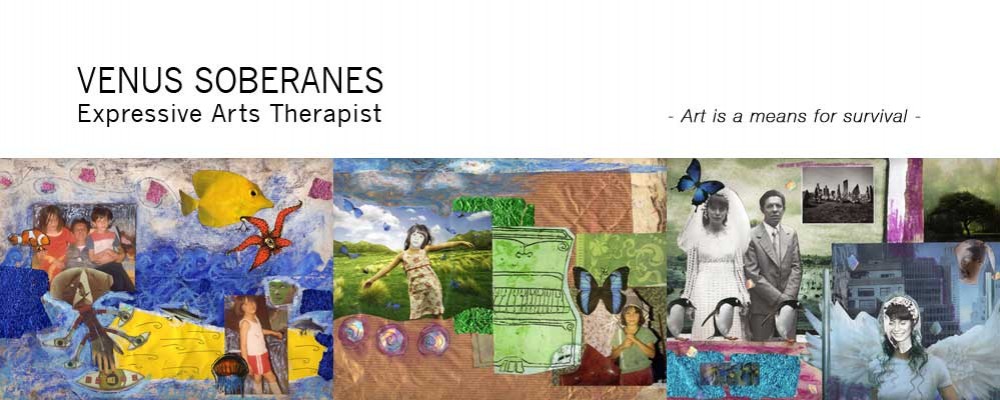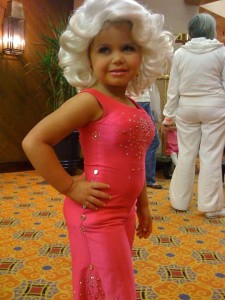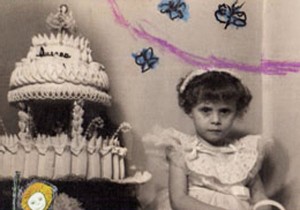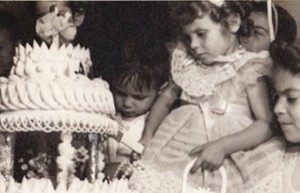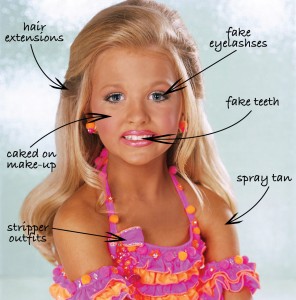I have noticed lately a great amount of little girls, some as young as one or two years old, all made up and dressed up as princesses. These little girls are not rehearsing for a play or dressed in costume for halloween; they are “embodying” an “every day” princess.
This, of course, is nothing new; the archetype of the “princess” has been around for a very long time, and it is prevalent in children’s books and stories. Disney has done a lot to push into little minds the idea that “every girl is a princess”, and it sells millions of dollars in videos, dresses, accessories and plastic toys to complement the illusion.
In her latest book, “Cinderella Ate My Daughter” best-selling author, Peggy Orenstein argues that the saturation marketing of the Disney Princess ideal can lead young girls towards narcissism and early sexualization, which in turn, can lead to self-image issues, eating disorders, depression and a whole host of other problems.
(To hear Peggy’s Orenstein’s interview on CBC, click here.)
Now, let’s think for a second about the “princess” as an archetype. An archetype (taken from Wikipedia) is a universally understood symbol, term, statement, or pattern of behavior, a prototype upon which others are copied, patterned, or emulated. Archetypes are often used in myths and storytelling across different cultures.
So, what defines a princess, if we think about all the stories that we know about them?
- She possesses physical beautiful
- She has lots of beautiful costumes
- She is always well behaved
- She is “good” and displays socially accepted “womanly” emotions, such as happiness, sadness, acceptance, fear. She will never be seen angry, ugly, unprepared, or jealous.
- She is not whole. She is not “enough” as an individual, and her life only makes sense when the Prince comes into the story.
- She is unable to change her situation, she is powerless to change her own story. The courageous young prince has to come to save her, as she is unable to save herself.
Are these the messages that we want young women to hear? Is this the version of femininity that we are supporting? Are these messages congruent with the values that we want our children to learn?
I grew up with the powerful influences of two women, my mother and my grandmother. My grandmother, raised in the 1940s, tried to impose a version of femininity very much aligned with the “princess” archetype. In her view, women were worthy only if they were able to attract a man; a woman’s role in life was to be pretty, thin, happy and clean. A perfect adornment for a man’s life. I remember being four and five years old when my grandmother started prompting me to “shrink my belly”, and “straighten my back”, and she gifted me princess costumes and “pretty” clothes.
My mother, having grown up with my grandmother, was opposed to that vision of womanhood and femininity. My mother remembers her 3 year old birthday, and what she remembers is being angry and bored and tortured by the three hours of hair and makeup in the hair salon that my grandmother subjected her to. In all her pictures of that party, my mom looks sad, tired, almost broken. I can see the same expression in the pictures where my grandmother dressed her as a ballerina.
My mother is a feminist. She believes that women are strong, independent, intelligent, resilient and capable of anything and everything. My mother didn’t try to impose on me her version of femininity, she lived it and modeled it for me. Growing up, I saw my mother driving, changing a car tire, fixing a washing machine, divorcing my incredibly non-handy-man father, going back to school, becoming a therapist, studying physics, changing the electrical wires in her house or building a closet. The list goes on. When I was four she gave me a microscope as a birthday present, and the stories she told me at night were about the big bang and the different types of stars. Growing up, I wanted to be an archaeologist like Indiana Jones, or a chemist, or an astronomer.
I cannot deny that my grandmother’s version of femininity did some damage, regardless of the strong model I had in my mother. The world conspires against women to make us feel inadequate, fat, old, wrong, wrinkly and not blond enough, so that they can sell us all the products they offer that will make us beautiful and therefore worthy of being loved.
Advertisement relies on the “princess” archetype, the outright objectification of women, to sell us their products. Studies have shown that, within 10 minutes of watching TV or looking at a magazine, 85% of women will start feeling bad about themselves. They will feel self conscious, fat, unlovable, their self esteem will plummet almost instantly.
Are these the values that we want to promote in our daughters? is it such a thing as “too early” to start objectifying a woman? The extreme version of this early objectification of girls in mainstream media can be seen in the horrendous (my word) reality show “Toddlers in Tiaras”, where little girls are encouraged to dress and act like beauty queens and princesses, looking to me like a caricature of womanhood on steroids.
Is anybody else seeing the damaging effect that this imposed and limited version of femininity is having in our society? in young women, in girls, in men?
It is not too late to STOP doing this to our young girls. Honestly ask yourself the following questions:
- is this princess business for her, the little girl in question, or is it for ME, the adult, needing to satisfy a childhood fantasy or innocently playing “doll” with a living, breathing person?”
- Are the values I want to promote being expressed fully?
- Are there better archetypes and models out there that could implement a stronger, better, healthier role model?
If you want to know more about archetypes, and get more information about children’s books with strong women in them, stay tuned for my next article!
